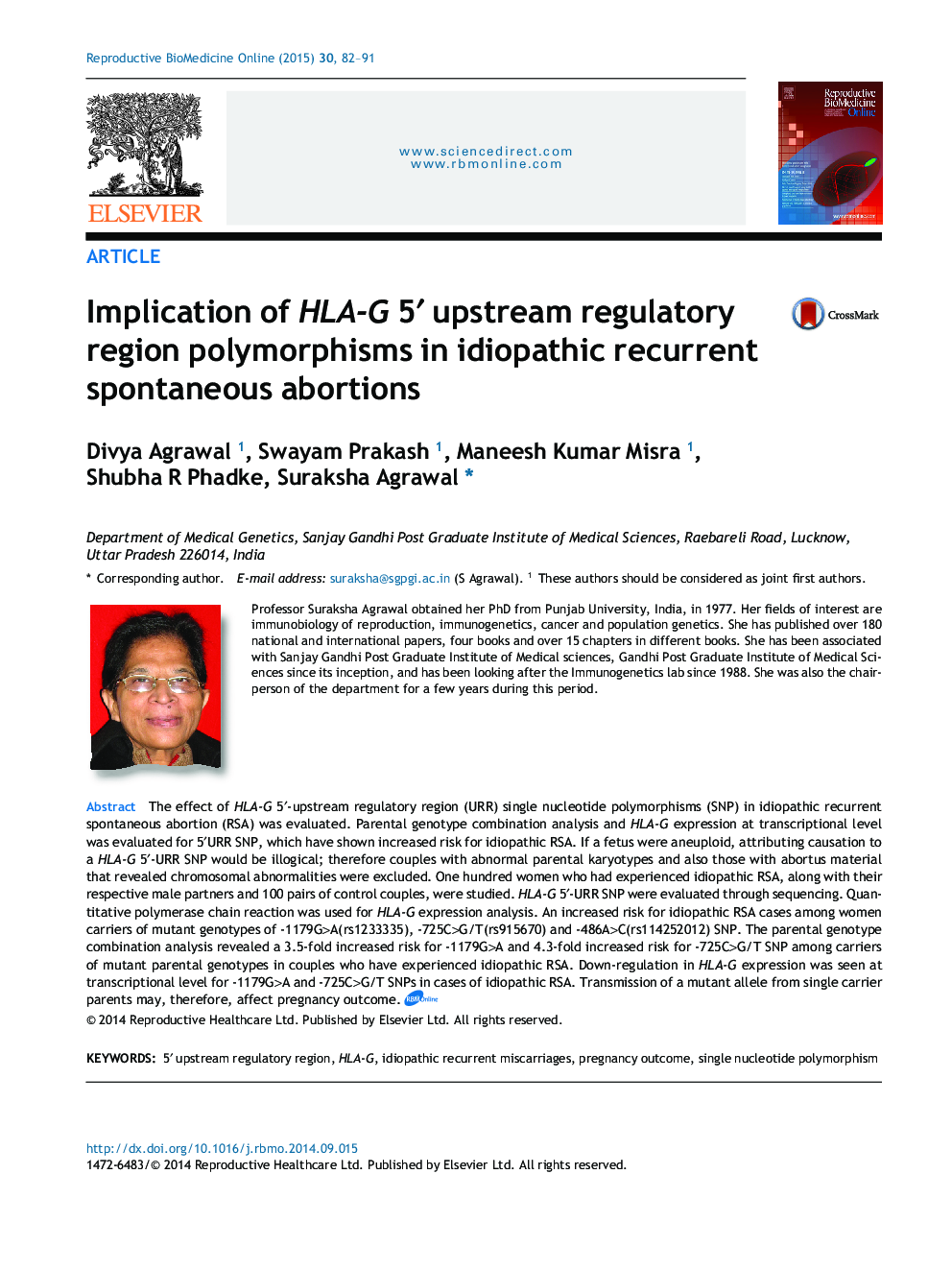| کد مقاله | کد نشریه | سال انتشار | مقاله انگلیسی | نسخه تمام متن |
|---|---|---|---|---|
| 6188940 | 1256703 | 2015 | 10 صفحه PDF | دانلود رایگان |

- 5â²URR SNPs 1179G > A, -725C>G/T and -486A>C showed increase risk for idiopathic recurrent miscarriages.
- Lower HLA-G mRNA level was seen for -1179G>A and -725C>G/T SNPs in idiopathic recurrent miscarriage cases compared with controls.
- 14bp Insertion allele showed susceptibility for idiopathic recurrent miscarriages.
- 5â²URR SNPs -1306G>A, -1179G>A, -633G>A and -486A>C are in strong linkage disequilibrium with 14bp I/D.
- 5â²URR SNPs along with 14bp I/D construct nine unique haplotype in North Indian.
The effect of HLA-G 5â²-upstream regulatory region (URR) single nucleotide polymorphisms (SNP) in idiopathic recurrent spontaneous abortion (RSA) was evaluated. Parental genotype combination analysis and HLA-G expression at transcriptional level was evaluated for 5â²URR SNP, which have shown increased risk for idiopathic RSA. If a fetus were aneuploid, attributing causation to a HLA-G 5â²-URR SNP would be illogical; therefore couples with abnormal parental karyotypes and also those with abortus material that revealed chromosomal abnormalities were excluded. One hundred women who had experienced idiopathic RSA, along with their respective male partners and 100 pairs of control couples, were studied. HLA-G 5â²-URR SNP were evaluated through sequencing. Quantitative polymerase chain reaction was used for HLA-G expression analysis. An increased risk for idiopathic RSA cases among women carriers of mutant genotypes of -1179G>A(rs1233335), -725C>G/T(rs915670) and -486A>C(rs114252012) SNP. The parental genotype combination analysis revealed a 3.5-fold increased risk for -1179G>A and 4.3-fold increased risk for -725C>G/T SNP among carriers of mutant parental genotypes in couples who have experienced idiopathic RSA. Down-regulation in HLA-G expression was seen at transcriptional level for -1179G>A and -725C>G/T SNPs in cases of idiopathic RSA. Transmission of a mutant allele from single carrier parents may, therefore, affect pregnancy outcome.
Journal: Reproductive BioMedicine Online - Volume 30, Issue 1, January 2015, Pages 82-91